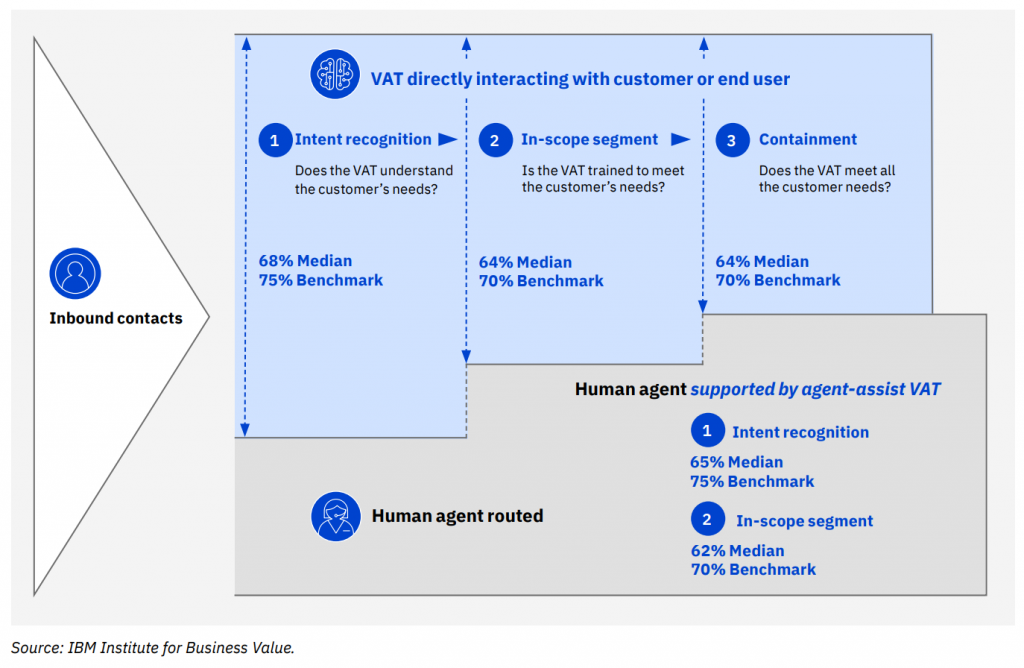
A study by IBM released this week highlights the rapid uptake of AI chatbots in addition to increasing customer satisfaction.
Most of us are hardwired to hate not speaking directly to a human when we have a problem—following years of irritating voicemail systems. However, perhaps the only thing worse is being on hold for an uncertain amount of time due to overwhelmed call centres.
Chatbots have come a long way and can now quickly handle most queries within minutes. Where a human is required, the reduced demand through using virtual agent technology (VAT) means customers can get the assistance they need more quickly.

The COVID-19 pandemic has greatly increased the adoption of VAT as businesses seek to maintain customer service through such a challenging time.
According to IBM’s study, 99 percent of organisations reported increased customer satisfaction by integrating virtual agents. Human agents also report increased satisfaction and IBM says those “who feel valued and empowered with the proper tools and support are more likely to deliver a better experience to customers.”
68 percent of leaders cite improving the human agent experience as being among their key reasons for adopting VAT. There’s also economic incentive, with the cost of replacing a dissatisfied agent who leaves a business estimated at as much as 33 percent of the exiting employee’s salary.
IBM claims that VAT performance in the past has only been studied through individual case studies. The company set out, alongside Oxford Economics, to change that by surveying 1,005 respondents from companies using VAT daily.
Businesses wondering whether virtual assistants are worth the investment may be interested to know that 96 percent of the respondents “exceeded, achieved, or expect to achieve” their anticipated return.
On average, companies which have implemented VAT have increased their revenue by three percent.
IBM is one of the leading providers of chatbots through its Watson Assistant solution. While there’s little reason to doubt the claims made in the report, it’s worth keeping in mind that it’s not entirely unbiased.
Watson Assistant has gone from strength-to-strength and appears to have been among the few things which benefited from the pandemic. Between February and August, Watson Assistant usage increased by 65 percent.
You can download a full copy of IBM’s report here.
(Photo by Volodymyr Hryshchenko on Unsplash)






